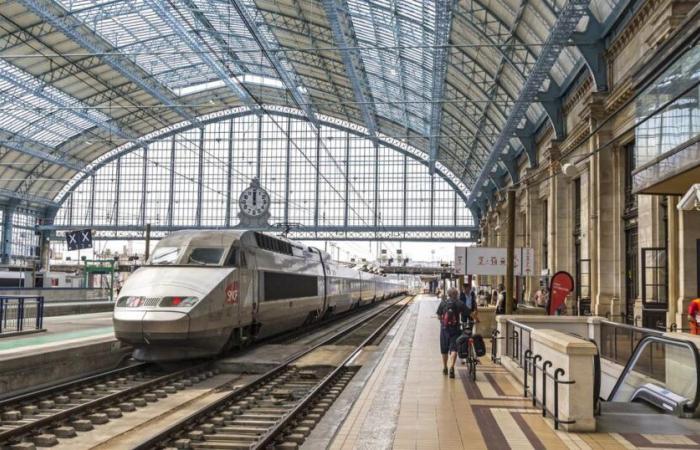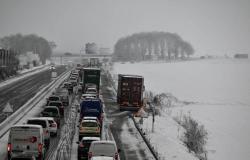FIGAROVOX/TRIBUNE – The liberalization of the rail freight market initiated by the European Union creates unfair competition between rail operators and road transport, analyzes Chloé Petat who publishes The failed revolution in rail transport (The Water's Edge).
Chloé Petat, co-editor-in-chief of the media The Time of Rupturesis the author of The failed revolution in rail transport (Editions du Bord de l’Eau, 2024). She is also a member of La Gauche Républicaine et Socialiste (GRS).
The European Union has adopted a series of regulations since the early 2000s, in order to open up the freight and passenger markets to competition, respectively in 2004 (second railway package) and in 2016 (fourth railway package). From the outset, the establishment of a competitive market was sold as the solution to reduce prices and costs, and to offer a more innovative service better suited to customers, whether travelers or businesses. .
What assessment can we draw from 20 years of liberalization of rail freight? A catastrophic outcome. The modal share of freight transport by train is today 9%, compared to 89% for road. Worse: this share continues to decline. At the beginning of the 1980s, the train transported 66.4 billion tonnes.km (transport quantity corresponding to the transport of one tonne over one kilometer) of goods; in 2022, it was 35.5, almost half as much. However, over the same period, road freight has continued to increase, as everyone can see on the roads.
In reality, rail freight has been going through a crisis for years that no recovery plan from the SNCF or the government seems to be able to stop. The latest plan, announced by the Borne government in May 2023, and confirmed last November, resembles a pure and simple dismantling of the SNCF freight subsidiary, under the injunction of the European authorities who accuse France of having granted anti-competitive aid to this public company.
France's freight strategy must evolve urgently: rail freight transport is essential to pursue a reindustrialization policy.
Chloe Petat
The problem is that the freight market cannot benefit from fair competition. Indeed, the State is required to increase investments in road infrastructure, which implies that part of the real cost of road transport is borne by the community. Conversely, rail freight operators must systematically pay an expensive toll to use the SNCF network. Competition is all the less fair as road transport companies can easily find solutions to circumvent taxes and tolls, thanks to the free road network or by refueling with petrol in a country where it is less taxed. They also benefit from reduced wage costs since the deregulation of the road sector in 1992, which allows them to hire foreign employees or locate their businesses in a more socially “accommodating” country.
The rail freight market has become highly fragmented since liberalization. There are around twenty players, although FRET SNCF retains around half of the market share. This fragmentation leads to weak coordination and lower efficiency and quality of service. Having difficulty convincing their customers, freight companies are often loss-making, which encourages the takeover of “small” ones by the big ones, and regularly destabilizes the sector. Another source of destabilization is the deterioration of infrastructure, since the smallest freight lines are on average 73 years old, leading to recurring problems and delays. Nearly one in six trains is delayed by more than 30 minutes.
While the European Union and France are setting ambitious objectives in terms of reducing greenhouse gases, their inability to overcome the dogma of competition rules is condemning a sector that is nevertheless key to the ecological transition. and reindustrialization. Also, France's freight strategy must evolve urgently: rail freight transport is essential to pursue a reindustrialization policy. Investments must be massive in order to rehabilitate the network and create new infrastructure. In short, we expect the government to have the courage to pursue its industrial and climate ambitions, even if it means entering into a power struggle with the European authorities.






